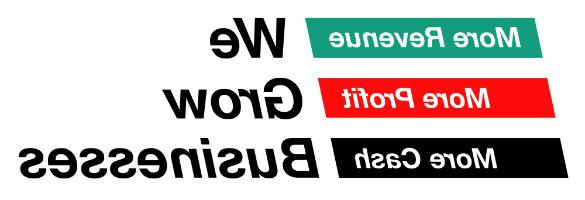From Comet to Carillion, history is littered with high profile business failures – both large and small. What do most of these cases have in common? Cash – or more specifically, a lack of it.
When things start to go wrong in a business there’s a fair chance that you will see early warning signs in a declining cash balance. If you spot it early, you can do something about it. If it’s allowed to fester then it can be terminal.
At the other end of the spectrum, a strong cash balance opens up a world of exciting possibilities to safely grow your business.
We view business growth as an investment. It’s commonly remarked that you should only invest what you can afford to lose. A strong cash balance means that the future of the business won’t be in jeopardy if the growth investment doesn’t work out as hoped – which can, and does happen!
At We Grow Businesses, we think that studying and benchmarking the cash balances in a business is like running a blood test on a human being. Perhaps that’s why people say that cash is the lifeblood of a business.
Our clients are a real mixed bag. Some have very strong cash positions, and others are under acute financial pressure. In all cases, the first graph we look at in our fortnightly Business Growth Meetings is cash.
Generally speaking, people with strong or improving cash positions are more relaxed and confident about the future. People with weaker, erratic or declining cash positions are often a lot more stressed.
For people under cashflow pressure it’s really important that we have a clear strategy to improve their bank balances. We also need to know what a good bank balance is, because it varies from one business to the next.
As a general rule of thumb, we like our clients to hold one to three months worth of costs in cash. Or, simply, if a business has costs of £10k per month, we would like to see £10k – £30k in the bank.
We believe one to three months of cash strikes a good balance between investing to grow and holding enough in reserve for a rainy day.
For extra Brownie points, we like to see cash balances net of VAT and Corporation Tax liabilities, so we have a really clear picture of the true working capital in the business and how this is changing over time without taxes muddying the water.
E se o seu saldo de caixa não for tão bom quanto você gostaria que fosse? Aqui estão as quatro etapas principais que sugerimos:
- Liquidate-vender ações (por exemplo, venda de liberação) e/ou ativos não utilizados. Empréstimos de capital de giro, fatoração de faturas, subsídios, investimentos, etc.
- Timing – Bring debtors forward in time, and push creditors back in time.
- Margins – Improve margins by increasing revenue (use low-cost growth strategies) and/or cutting costs.
- Debt / Equity – Overdraft, working capital loans, invoice factoring, grants, investment, etc.
pode ser muito difícil entender problemas em dinheiro sem um sistema contábil decente para ajudar a analisar os dados. Trabalhamos em estreita colaboração com os contadores para ajudar nossos clientes a obter dados de boa qualidade e aproveitar a mais recente tecnologia contábil disponível para pequenas empresas. Podemos fornecer conselhos, idéias e experiência - sem obrigação de usar nossos serviços.
If cash concerns are holding back your aspirations to grow your business then come and have a chat with us. We can provide advice, ideas and experience – with no obligation to use our services.
Se você estiver executando um forte saldo de caixa, mas não tem certeza de como colocá -lo melhor para crescer, por que não nos visitar para falar sobre o que é possível. Nossas ferramentas de benchmarking mostrarão como você se compara à população mais ampla de pequenas empresas e permitirá que você avalie algumas opções apoiadas por dados. Business
For more information, contact us or book a Free Growth Health Check.


